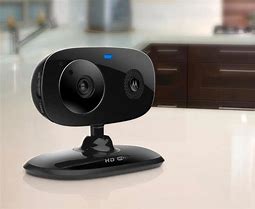
by Pritti Bhabra | 10 Mar, 2020 | General News, Technology News
Millions of people around the world have been told to work from home in a bid to slow the spread of Covid-19. Companies such as Apple and Google have actively encouraged employees to feel free to work remotely – if the job allows it.
Fortunately there are now many tools and services available to help employees perform their roles effectively from home. Communication is crucial, which is why remote meeting services are in high demand. Videoconferencing services, such as Webex and Rival Zoom, have upgraded their free service in response to the surge in demand. Some now include a longer free-day trial, while the maximum number of users has also been increased.
Those new to working from home will be presenting great opportunities for hackers to steal sensitive information or commit online fraud. To keep information secure most companies will use a virtual private network (VPN) to create an encrypted connection from the user’s computer to their company IT system. However, even businesses with a quality VPN may need to buy more user licenses or improve the server capacity for everyone to use it at once. Some prefer to control work computers from home using remote desktop software. You might even want to use both bits of tech, which would provide a secure way to access your work computer.
It is important that you check that you have a secure and reliable internet connection. If not, you may need to upgrade, or invest in a mobile hotspot or router.
Anyone who collaborates with colleagues in different locations has probably used documents shared over the internet. Slack, for example, is a secure instant messaging platform that offers file sharing and video calls and wants “to replace email”. It has around ten million users, and is said to be a great way of keeping in touch with everyone when you are working remotely. (Other options include Microsoft’s Teams platform)
But what if you find working at home distracting? Making snacks, playing with pets and even household chores might be more appealing than your paid work. Is so, then Focusmate will provide an “accountability partner”. That’s another home worker who keeps an eye on you while you are at your desk.
You connect the video cameras on your computers together at the start of the session, and get to work. There’s no sanction if you go and watch TV halfway through, except the mild disapproval of a relative stranger – but the company claims that its customers report reduced procrastination. Social pressure, it argues, it one of the most powerful ways to motivate yourself.
www.bbc.co.uk/technews (10th March)
If you need any advice or guidance on what may help you get the best out of working safely and effectively from home, please do not hesitate to give us a call on 024 7699 5930 here at ADECS-Maple.

by Pritti Bhabra | 3 Mar, 2020 | General News, Technology News
Twitter has told its employees to work from home to help stop the spread of the coronavirus. It is mandatory for staff in Hong Kong, Japan, and South Korea to work remotely, but they said they were ‘strongly encouraging’ all of its 5,000 employees world wide to not come into work. This comes a day after the company banned all non-essential business travel and events for its workers.
The post also highlighted that Twitter has been developing ways to work from home for some time: “While this is a big change for us, we have already been moving towards a more distributed workforce that’s increasingly remote. We’re a global service and we’re committed to enabling anyone, anywhere to work at Twitter.” Twitter’s Chief Executive Jack Dorsey has long-supported remote working and in November announced plans to live in Africa for up to six months of this year.
The move is similar to measures put in place by many companies in Asia as the virus sweeps the region, but goes further than most big American businesses as they respond to the outbreak.
www.bbc.co.uk/technews (3rd March)

by Pritti Bhabra | 3 Mar, 2020 | General News, Technology News
Security chiefs have warned that smart cameras and baby monitors can be watched by criminals over the internet by default. The National Cyber Security Centre (NCSC) is advising people to change the settings after buying them. Easy-to-guess default passwords might let a hacker secretly observe a home through connected devices, it said. There are many examples of devices being accessed without permission.
The new guidance for owners of smart cameras suggests the following steps – changing the default password, keeping the camera’s software, sometimes called firmware, updated, and switching off features that let you check the cameras remotely, if you don’t need or use it.
As connected devices move into people’s homes and everyday lives, cyber-security risks are becoming very personal, with challenges in protecting people’s data and privacy. Companies making these devices often try to make them cheap and fast to capture the new market – and not much though is given to security. The problem is leading towards not just more warnings such as this one, but also new mandate security standards.
www.bbc.co.uk/technews (3rd March)

by Pritti Bhabra | 21 Feb, 2020 | Technology News
The facilities company, ISS World, has been hit by a cyber-attack. ISS provides cleaning, catering, security and other services to companies in the UK and elsewhere, and has half a million employees worldwide. Its websites have been down since the 17th of February, with 43,000 staff at London’s Canary Wharf and its Weybridge HQ in Surrey with still no email. ISS said it was a malware attack, but declined to specify further. The company said that many of its global employees do not use its computers in their daily work – but the impact is affecting the whole company. ISS said it had disabled access to its IT services as a precautionary measure when it noticed the attack, isolating the incident.
Ransomware has become the biggest challenge in cyber-security. The frequency of attacks makes it impossible to report on every incident. Hackers are now ignoring the individual victims at home and are now concentrating their resources and time on bigger targets for bigger rewards. Ransom payments are rising, with some hacker gangs successfully extorting millions from victims. The issue is a big concern for law enforcement agencies such as Europol and the FBI, which are constantly urging people not to pay hackers as it fuels the industry.
www.bbc.co.uk/technews (20th February)

by Pritti Bhabra | 21 Feb, 2020 | Technology News
MGM confirmed this week that the hack took place last summer. The data exposed included names, addresses, and passport numbers for former guests. MGM said it was confident that no financial information had been exposed. They could not confirm exactly how many people had been impacted because information that was exposed might be duplicated. MGM said that most of the data that was stolen was already publicly available, such as names, telephone numbers, and email addresses. However, 1,300 former guests were notified that more sensitive information including passport numbers had been revealed. A further 52,000 customers were told that less sensitive personal information was exposed. MGM said its notification to customers followed state laws. Most US states do not require companies to tell customers if data which is already public has been exposed during a hack.
This is not the largest hacking of hotel guest information. In 2017, Marriott Hotels experienced a much larger data breach exposing 500 million guests. That attack was linked to Chinese state-sponsored hackers.
www.bbc.co.uk/technews (20th February)





